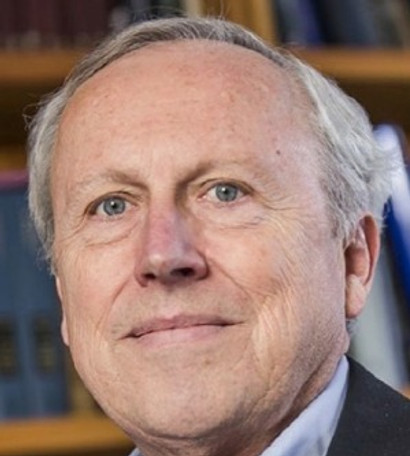PEOPLE

Frederick Maxfield, PhD
Principal Investigator
Fred Maxfield is the Vladimir Horowitz and Wanda Toscanini Horowitz Distinguished Professor in the Department of Biochemistry at Weill Cornell Medical College.He received a PhD in Chemistry from Cornell University and was a postdoctoral fellow at the National Cancer Institute. Before coming to Weill Cornell, he was a Professor at NYU School of Medicine and Columbia University Medical Center. He is interested in the use of quantitative methods measure dynamic processes in cells. These studies have included analysis of endosome pH, kinetic mapping of endocytic pathways, and studies of cholesterol transport. Translational applications of these methods include (1) studies of the interactions of macrophages with lipoproteins and with dead cells, (2) analysis of the degradation of Alzheimer’s amyloid plaque by microglia, and (3) development of novel therapies for Niemann-Pick C disease.

Santiago Solé-Domènech, PhD
Research Associate
Santiago Solé-Domènech received his Ph.D in Medical Science from Karolinska Institute (Stockholm, Sweden) in 2012. Before that, he obtained his bachelor degree in Chemistry from Girona University in 2006 (Girona, Spain). Santiago joined the Maxfield lab as a postdoctoral associate in 2013. He is interested in the study of microglia endocytosis, lysosomal pH, and the role played by these processes in Alzheimer’s disease. In the Maxfield lab, Santiago uses intravital and confocal microscopy and various other digital analysis techniques to study lysosomal dynamics and pH, both in-vivo and in-vitro, in microglia. The main goal of Santiago's work is to develop therapies that enhance the degradative capacity of myeloid cells as alternative to amyloid-beta immunotherapy.

Cheng-I Jonathan Ma, PhD
Postdoctoral Associate
Jonathan received his MSc in Biochemistry from McGill University and completed his PhD in Medical Science at the University of Toronto. He has developed a strong interest in cell biology, specifically on membrane trafficking, organelle biogenesis and intracellular lipid transport. In December 2020, Jonathan joined the Maxfield lab as a postdoctoral fellow to study how macrophages digest large aggregates of LDL through lysosome exocytosis. Currently, he is investigating the roles of the lipid transfer protein STARD4 in foam cell formation and how changes in the inflammatory state of macrophages can alter their ability to digest aggregated LDL.

Noah Steinfeld, PhD
Postdoctoral Associate
Noah Steinfeld received his PhD in Cell Biology from the University of Michigan in 2021. Before that, he obtained his bachelor’s degree in Molecular Biophysics and Biochemistry from Yale University in 2014. Noah joined the Maxfield lab as a postdoctoral associate in 2021. In the Maxfield lab, Noah uses confocal microscopy and other molecular biology techniques to quantitate various aspects of digestive exophagy. He is interested in understanding the signaling mechanisms and machinery that regulate digestive exophagy in macrophages and in the role this process plays in atherosclerosis.

Alvin Wang
Research Technician
Alvin earned a B.S. in Biology from Stony Brook University and subsequently joined the Maxfield lab in 2022. In the lab, he is characterizing the roles of STARD4 in digestive exophagy and foam cell formation. He also assesses the benefits of novel drugs on Niemann Pick C disease. Alvin is hoping to start his PhD studies in Fall 2024!

Lucy Funes
Research Technician
Lucy Funes obtained her Bachelor’s Degree in Neuroscience and Behavior from Vassar College and joined the Maxfield lab soon after. Currently she studies microglia’s role in Amyloid Beta Plaque degradation as it relates to Alzheimer’s disease through means of numerous techniques in molecular biology as well as microscopy. She plans on getting a PhD in Neuroscience and afterwards continuing research towards better mechanistic understanding/efficient and accessible treatment of Alzheimer’s disease.